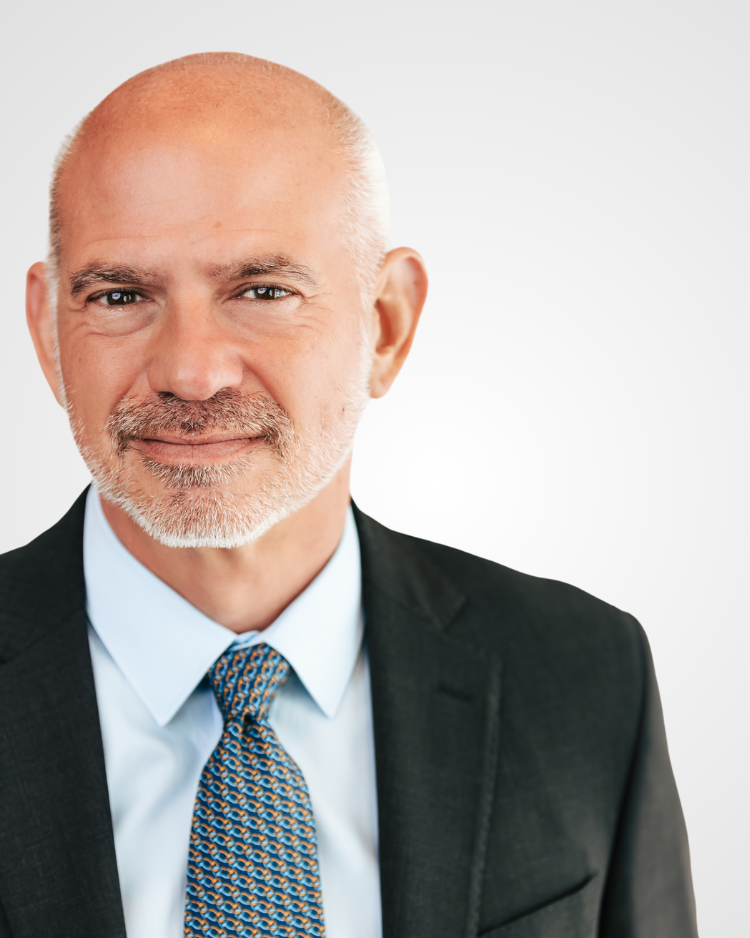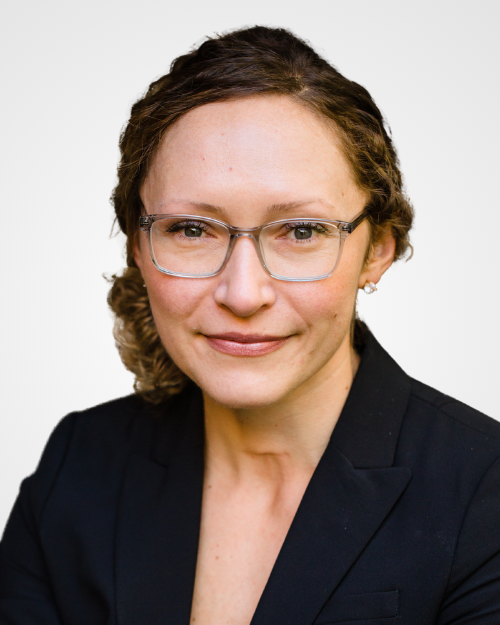Societal trends and global dynamics are accelerating in complexity across multiple fronts and changing human behaviors at a faster pace than ever before. As forces for change increase, proactive nonprofit leaders are pursuing strategies to keep their fundraising teams ahead of the curve.
CFA Principal, Mid-Atlantic Johnny Burleson brings more than 20 years’ experience spanning arts and culture, education, and human services as he guides CFA clients to navigate shifting philanthropic trends. While understanding the importance of local and global dynamics, Johnny encourages organizations to prioritize meaningful donor relationships by infusing a culture of philanthropy throughout their organizational architecture. Ultimately, it will be these relationships that sustain organizations during the most tumultuous of times.
- Culture of Philanthropy: A set of organizational beliefs, practices, and priorities that consider fundraising and philanthropy a shared responsibility that must be fully integrated across programs, finance, and operations. Through a disciplined approach rooted in engaging and meaningful relationships with donors, a culture of philanthropy leads to increased investments that ultimately advance an organization’s mission and work.
RECENT TRENDS IMPACTING PHILANTHROPY
From rapid technological advancements and climate change, to heightened economic and political uncertainty, there is no shortage of developments on the forefront in the United States and around the world. Today’s donors and philanthropists are experiencing and responding to these societal shifts in different ways.
According to the 2023 Giving USA report, donations from individual donors have fallen significantly over the past 40 years, now comprising only 64% of all philanthropic giving compared to 81% in 1982. For some donors, economic and geopolitical uncertainty is contributing to decreased giving. For others, the rise in virtual engagement and unending streams of nonprofit content are leaving them disconnected from causes they care about. For others still, the seemingly insurmountable nature of society’s challenges can create a sense of apathy.
Despite the plethora of challenges and resulting headwinds, there is a recognition that people and organizations need to come together to create solutions that are more expansive than any single entity can accomplish alone. According to Johnny, these rapid shifts are motivating some philanthropists to seek deeper levels of engagement in the causes they care about. “This depth and breadth of change has not been experienced by previous generations…and this moment represents great potential for the nonprofit sector.”
With information at their fingertips, Johnny notes, donors today have a deeper understanding of the issues at hand and a greater sense of an equitable future. “Now more than ever, active philanthropists are thinking about their giving from a business perspective, with themselves as shareholders in the societal return on investment.”
Donors also want to be more authentically engaged as part of the solution. “Younger generations of donors want to roll up their sleeves and truly get involved, to contribute both financially as well as intellectually to the problems at hand.” These generational and behavioral trends present an important opportunity for organizations seeking to sustain and increase giving amongst individual donors.
SUSTAINING FUNDRAISING SUCCESS DURING TIMES OF CHANGE
Successful fundraising begins with a compelling vision that unites staff, volunteers, and donors around a shared goal. With a strong case for support, organizations with an agile infrastructure instilled with a culture of philanthropy will be poised to navigate significant periods of change while keeping donors closely engaged.
Cohesive Organizational Architecture
A true culture of philanthropy permeates not only the development team, but also marketing, operations, and programs. As Johnny shared in a recent webinar A Generation of Change hosted by APS Group and CFA, “Organizations must design their culture from the ground up around relationships and donor engagement.”
By embedding a culture of philanthropy into every facet of an organization, the responsibility for relationship cultivation, strategic engagement, and stewardship becomes shared amongst staff and extends to the board and volunteers as well. This cultural paradigm enables deeper levels of donor stewardship, safeguarding relationships and serving as a protective factor against internal and external shifts.
Deep Donor Engagement
Despite external forces of change impacting the nonprofit sector, effective fundraising remains centered on relationship-building and authentic donor engagement. As CFA recently shared in an article exploring campaign committees, “While virtual communications and social content may reach a broader audience of potential supporters, these strategies are less likely to sustain and increase giving without developing personal donor connections.” In this era of digital engagement, trust can be built more quickly through consistent storytelling that creates an emotional connection to an organization’s work and impact, however top priority relationships will only go as deep as their personal connections to the humans making that impact possible.
Key trends are emerging in response to declines in individual giving as organizations seek to build stronger pipelines of supporters. According to The Chronicle of Philanthropy, many organizations are prioritizing their existing supporters through personal stewardship – including phone calls, handwritten notes, and messages tailored to each donor – while also finding success leveraging the networks of current donors to attract new supporters. CFA also recommends creative stewardship techniques, such as private gatherings, customized impact reports, and exclusive experiences.
A key component of stewardship is what Johnny refers to as “radical storytelling.” Far from traditional, generic donor communications, radical storytelling is “being fully transparent with donors and emphasizing with clarity the inspirational impact an organization is achieving.” Radical storytelling requires bringing donors on the inside, authentically sharing both challenges and accomplishments, and contextualizing the organization’s work within broader regional or systemic challenges. It is this kind of frequent and in-depth storytelling that provides proof of impact, creating strong connections and increasing levels of engagement.
CFA IS HERE TO HELP!
While so much in the nonprofit sector and the broader world around us is evolving, one constant remains: the importance of building relationships.
Donor relationships are foundational to our work at CFA and remain ever critical to the fundraising success of our clients. Whether we are conducting a development assessment, strengthening an annual giving program, or launching a campaign, we support our clients to establish the groundwork for a strong culture of philanthropy at every level of their organization.
With a shared organizational understanding of what is possible through philanthropy, and by intentionally building teams with the skill sets and capacities to meaningfully and consistently engage donors, organizations will be prepared to withstand future shifts while tapping into the transformational generosity that is driven by human connections and our shared desire for a better world.
If you are interested in exploring how CFA can support your organization to navigate shifting philanthropic trends and deepen donor relationships, contact CFA today.
Johnny Burleson, Principal, Mid-Atlantic
Johnny comes to CFA with over 20 years of nonprofit advancement experience in the arts and cultural, educational, and human services sectors. His proven track record of high-trust, high-performance leadership spans multiple areas of expertise, including campaign planning, major gifts, corporate and foundation relations, and government relations.
As Principal, Mid-Atlantic, Johnny oversees projects spanning CFA’s suite of fundraising counsel services. Johnny believes in aligning donors’ passions with innovative ideas, emphasizing the importance of promoting philanthropy through coalition-building and partnerships to achieve the greatest impact.
Prior to joining CFA, Johnny served as Chief Advancement Officer for North Carolina Museum of Art in Raleigh, where he successfully restructured development and membership operations and transitioned the organization from a transactional approach to an institution-wide culture of philanthropy. Johnny also oversaw the planning of the largest fundraising campaign in the museum’s history.
Prior to his role at NCMA, Johnny held the position of Director of Strategic Partnerships with the Blue Cross and Blue Shield of North Carolina Foundation, playing a pivotal role in building and stewarding local, state, and national relationships to bring philanthropic and federal resources to North Carolina in support of stronger, healthier communities. Johnny’s extensive career also includes 17 years in higher education philanthropy and advancement. He began at his alma mater, North Carolina State University, where he received a BS in Textiles with a focus on the Italian textile industry. Additionally, he held leadership positions at Appalachian State University and the University of North Carolina School of Government in Chapel Hill.
Johnny has volunteered as board member for several North Carolina nonprofits, including Preservation North Carolina, Triangle Land Conservancy, Lost Province Center for the Cultural Arts, Ashe County Chamber of Commerce, and Ashe County Arts Council. Outside of work, Johnny can be found on Old Orchard Creek, his blueberry farm located in Ashe County, NC. His farm is on the National Historic Register and is also protected by a conservation easement, reflecting his personal passion for the mountains, the arts, historic preservation, water, land, trails, local food, and sustainable agriculture.
Kendall Carlson, Content Writer
A frequent contributor to CFA’s digital content, Kendall Carlson has spent her career advancing nonprofit organizations across the Twin Cities. With 16 years of experience, Kendall brings a balance of strategic and operational leadership spanning fundraising, program development, evaluation, and strategic planning.
Most recently, Kendall served as Development and Communications Director at Hired, where she diversified revenue for the organization’s $11M budget and increased individual giving by 60%, led a rebrand, and launched an organization-wide data for impact initiative. Prior to Hired, Kendall served at Greater Twin Cities United Way, where she led an advancement strategy team to increase investment and engagement from the organization’s top corporate and major donors. Kendall is known as a strategic, solution-oriented leader with a high capacity for detail and commitment to quality. She launched her consulting practice, Luminate Consulting, in 2022 to bring her skills in fundraising and program strategy to nonprofits seeking sustainable growth.


